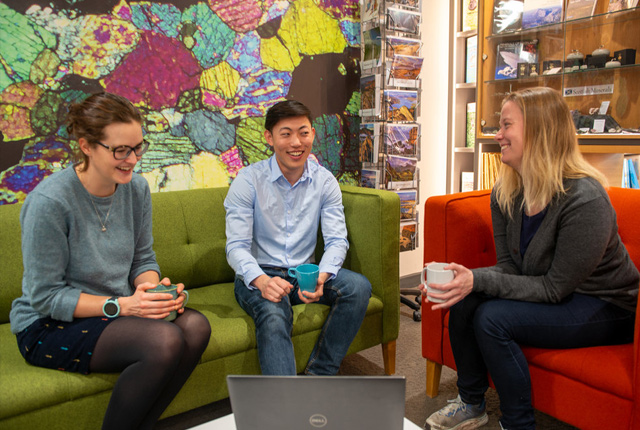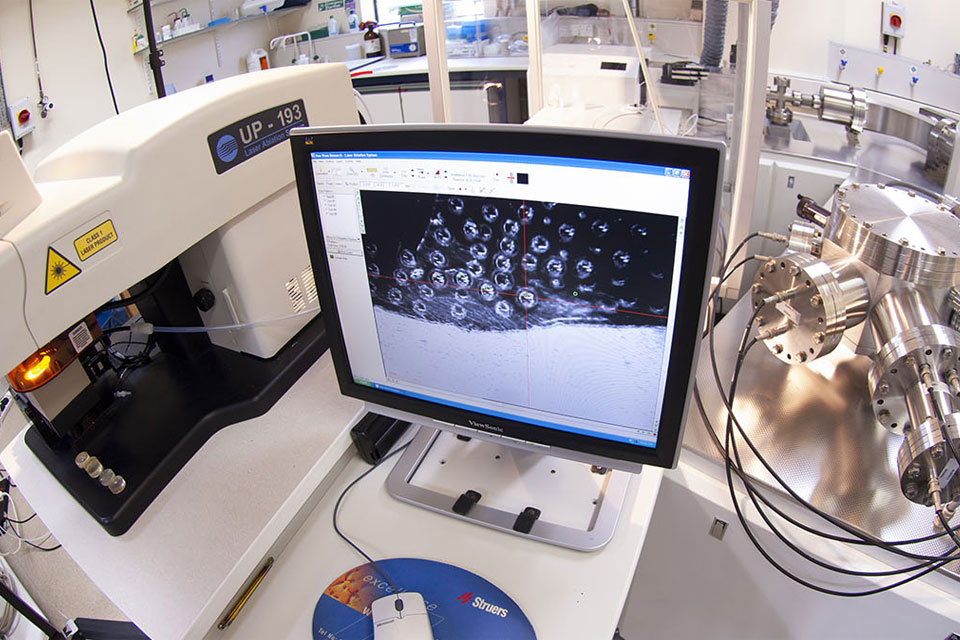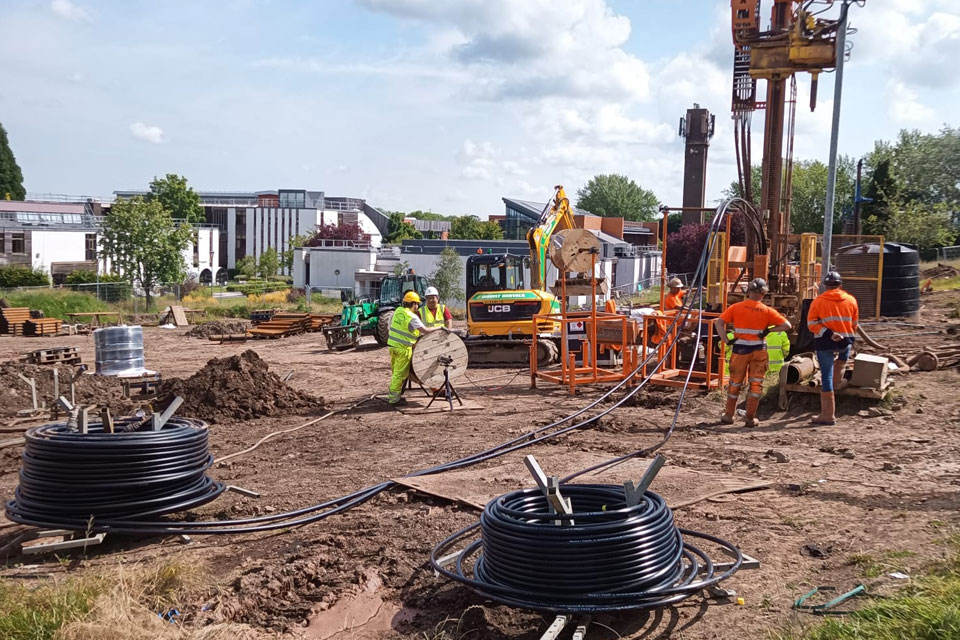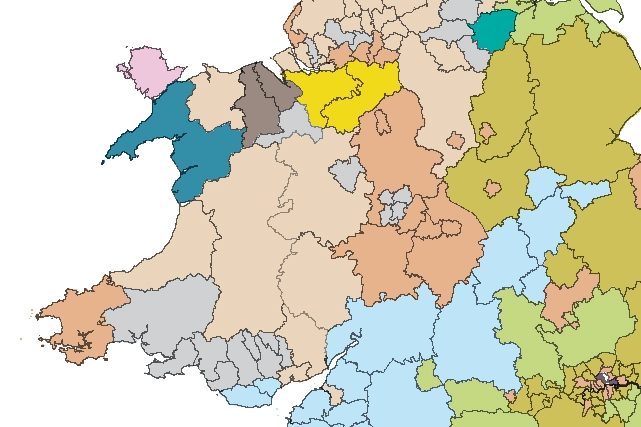2024 BGS summer placements scheme
BGS is offering a six-week placement scheme for early-year students in a geography, earth science or environmental sciences degree.
27/05/2024 By BGS Press
BGS is excited to offer a placement scheme during the summer of 2024 for students who are about to enter university, or who are currently studying as an undergraduate student in years 1 or 2 of their geography, earth science or environmental sciences degree. As part of this scheme, BGS will take up to four students who will have the opportunity to:
- learn about BGS
- learn and experience the diversity of job roles within geosciences
- work on a number of collaborative geoscience projects with an equality, diversity and inclusion and public engagement component
BGS welcome applications from students who meet the criteria. We particularly welcome applications from under-represented groups in the geographical, earth and environmental sciences (GEES), for example individuals from low-income backgrounds, marginalised ethnic and gender groups and / or people with disabilities (visible and hidden).
Students applying for this scheme must be 18 or over at the time of application.
Criteria
- Completed sixth form or in years 1 or 2 of an undergraduate GEES degree
- Available for six weeks between 15 July and 13 September 2024
- Over 18 by the closing date
- Have the right to work in the UK
- Applied by the deadline 16:00 on Friday 7 June 2024
- Submit a CV and a covering letter that addresses the three main questions (see placement application pack)
If your experience looks a little different from these criteria and you think you can bring value to the role, we would love to learn more about you.
Further information
If you have any questions about this scheme, please contact Dr Keely Mills (EDITeam@bgs.ac.uk), the scheme coordinator.
Latest news

Call for new members and Chair to join the NERC facilities steering committees
25/02/2026
New members are needed to join the committees over the next four years.

Your views wanted – developing a ‘Geothermal energy subsurface data portfolio’
24/02/2026
BGS is aiming to support the growth of the sector by providing the best-available, location-specific geothermal and ground source heat information as an accessible product or service.

Map of BGS BritPits showing the distribution of worked mineral commodities across the country
18/02/2026
BGS’s data scientists have generated a summary map of the most commonly extracted mineral commodities by local authority area, demonstrating the diverse nature of British mineral resources.

Funding awarded to map the stocks and flows of technology metals in everyday electronic devices
12/02/2026
A new BGS project has been awarded Circular Electricals funding from Material Focus to investigate the use of technology metals in everyday electrical items.

New UK/Chile partnership prioritises sustainable practices around critical raw materials
09/02/2026
BGS and Chile’s Servicio Nacional de Geología y Minería have signed a bilateral scientific partnership to support research into critical raw materials and sustainable practices.

Extensive freshened water confirmed beneath the ocean floor off the coast of New England for the first time
09/02/2026
BGS is part of the international team that has discovered the first detailed evidence of long-suspected, hidden, freshwater aquifers.

Funding secured to help mitigate ground risk in UK construction sector
05/02/2026
The BGS Common Ground project has been awarded new funding to help unlock the value of ground investigation data.

Can sandstones under the North Sea unlock the UK’s carbon storage potential?
02/02/2026
For the UK to reach its ambitious target of storing 170 million tonnes of carbon dioxide per year by 2050, it will need to look beyond the current well-studied geographical areas.

Quaternary UK offshore data digitised for the first time
21/01/2026
The offshore wind industry will be boosted by the digitisation of a dataset showing the Quaternary geology at the seabed and the UK’s shallow subsurface.

Suite of ten new soil reference materials released
02/01/2026
BGS has a longstanding track record of producing high-quality reference materials and has released ten new soil reference materials.

Perth and Kinross tops the UK’s earthquake activity charts for 2025
29/12/2025
Seismologists at BGS have published data on the number of seismic events over the past 12 months with over 300 earthquakes recorded.

BGS awarded funding to support Malaysia’s climate resilience plan
17/12/2025
The project, funded by the Foreign, Commonwealth & Development Office, will focus on minimising economic and social impacts from rainfall-induced landslides.

